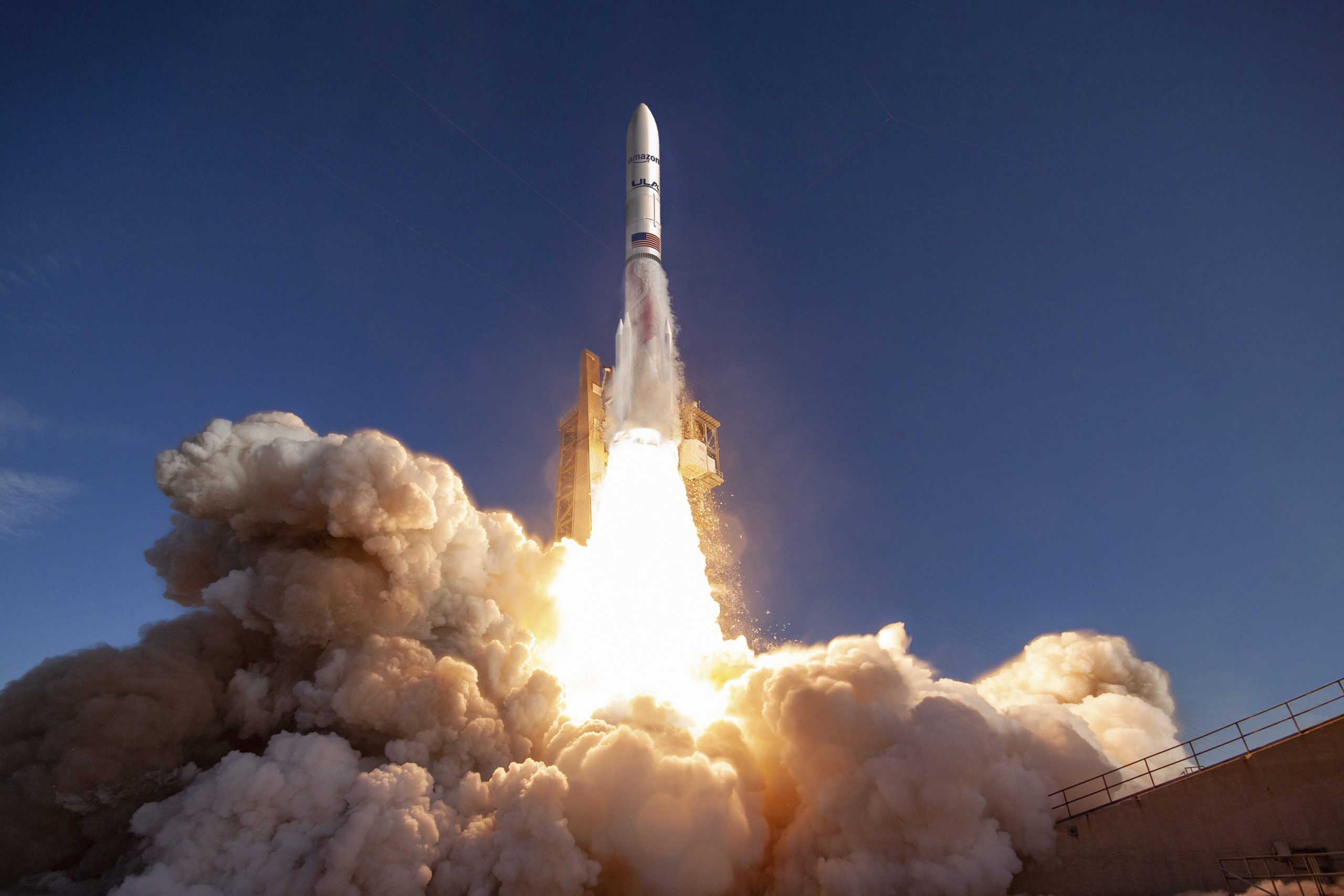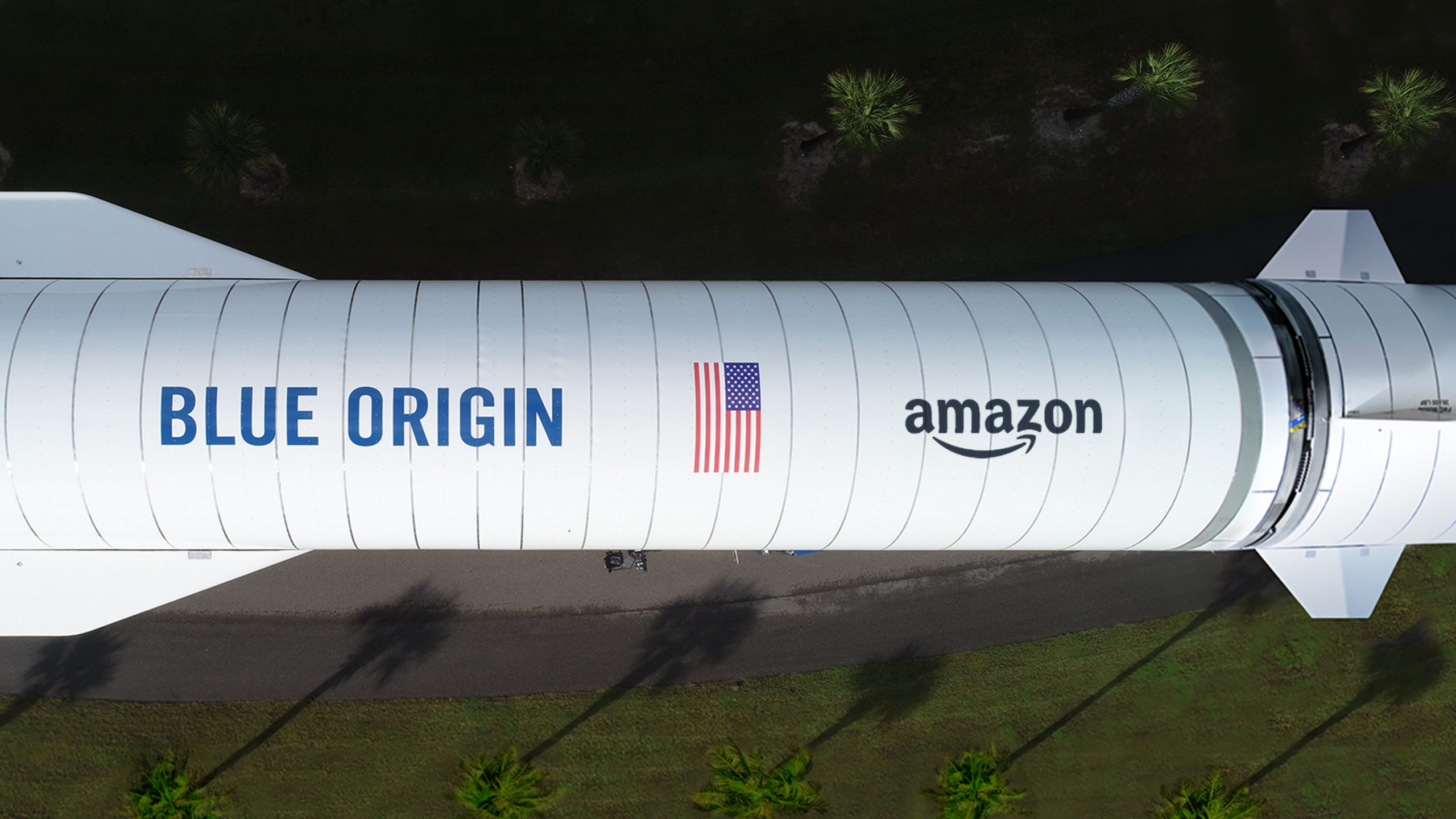Amazon Signs Rocket Deal For Project Kuiper Satellite Launches

Amazon signs huge rocket deal with Arianespace, Jeff Bezos’ Blue Origin, and United Launch Alliance (ULA) for Project Kuiper satellites
Amazon on Tuesday has signed a rocket deal with three firms to provide heavy-lift launch services for Project Kuiper.
The e-commerce giant signed what it says is “the largest commercial procurement of launch vehicles in history, with three companies namely United Launch Alliance (ULA), Arianespace and Jeff Bezos’ Blue Origin.”
They will provide up to 83 launches for Amazon’s Project Kuiper internet satellites. Project Kuiper is Amazon’s plan to build a network of 3,236 satellites in low Earth orbit, to provide high-speed internet to anywhere in the world.

Project Kuiper
The 83 launch agreement will provide enough heavy-lift capacity for Project Kuiper to deploy the majority of its low Earth orbit (LEO) constellation of 3,236 satellites.
Amazon has signed contracts for 38 launches using the Vulcan rockets from United Launch Alliance (ULA) (a joint venture of Boeing and Lockheed Martin); 18 launches on the Ariane 6 rocket with Europe’s Arianespace; and 12 launches with Blue Origin and its New Glenn rockets, with an option for as many as 15 additional launches.

Perhaps unsurprisingly, notably absent from Amazon’s launch was rival Elon Musk’s SpaceX, with its Starlink network.
Amazon’s Project Kuiper is not just competing with Starlink, but also with the UK’s OneWeb, which is about two-thirds into launching its first generation of satellites.
“Project Kuiper will provide fast, affordable broadband to tens of millions of customers in unserved and underserved communities around the world,” said Dave Limp, senior VP for Amazon Devices & Services.
“We still have lots of work ahead, but the team has continued to hit milestone after milestone across every aspect of our satellite system,” said Limp. “These launch agreements reflect our incredible commitment and belief in Project Kuiper, and we’re proud to be working with such an impressive lineup of partners to deliver on our mission.”
Satellite connectivity
It was back in July 2020 when the Federal Communications Commission (FCC) gave its official approval for Amazon’s Project Kuiper satellites, which will reportedly cost more than $10 billion” to build.

Project Kuiper aims to provide high-speed, low-latency broadband to a wide range of customers, including individual households, schools, hospitals, businesses, government agencies, disaster relief operations, mobile operators, and other organisations working in places without reliable internet connectivity.
“Securing launch capacity from multiple providers has been a key part of our strategy from day one,” said Rajeev Badyal, VP of Technology for Project Kuiper at Amazon.
“This approach reduces risk associated with launch vehicle stand-downs and supports competitive long-term pricing for Amazon, producing cost savings that we can pass on to our customers.”
“These large, heavy-lift rockets also mean we can deploy more of our constellation with fewer launches, helping simplify our launch and deployment schedule,” said Badyal. “We’re excited to move one step closer to connecting residential, business, and government customers around the world.”
Launches are slated for later this year, although Amazon has not revealed when the Kuiper launch campaign will begin.